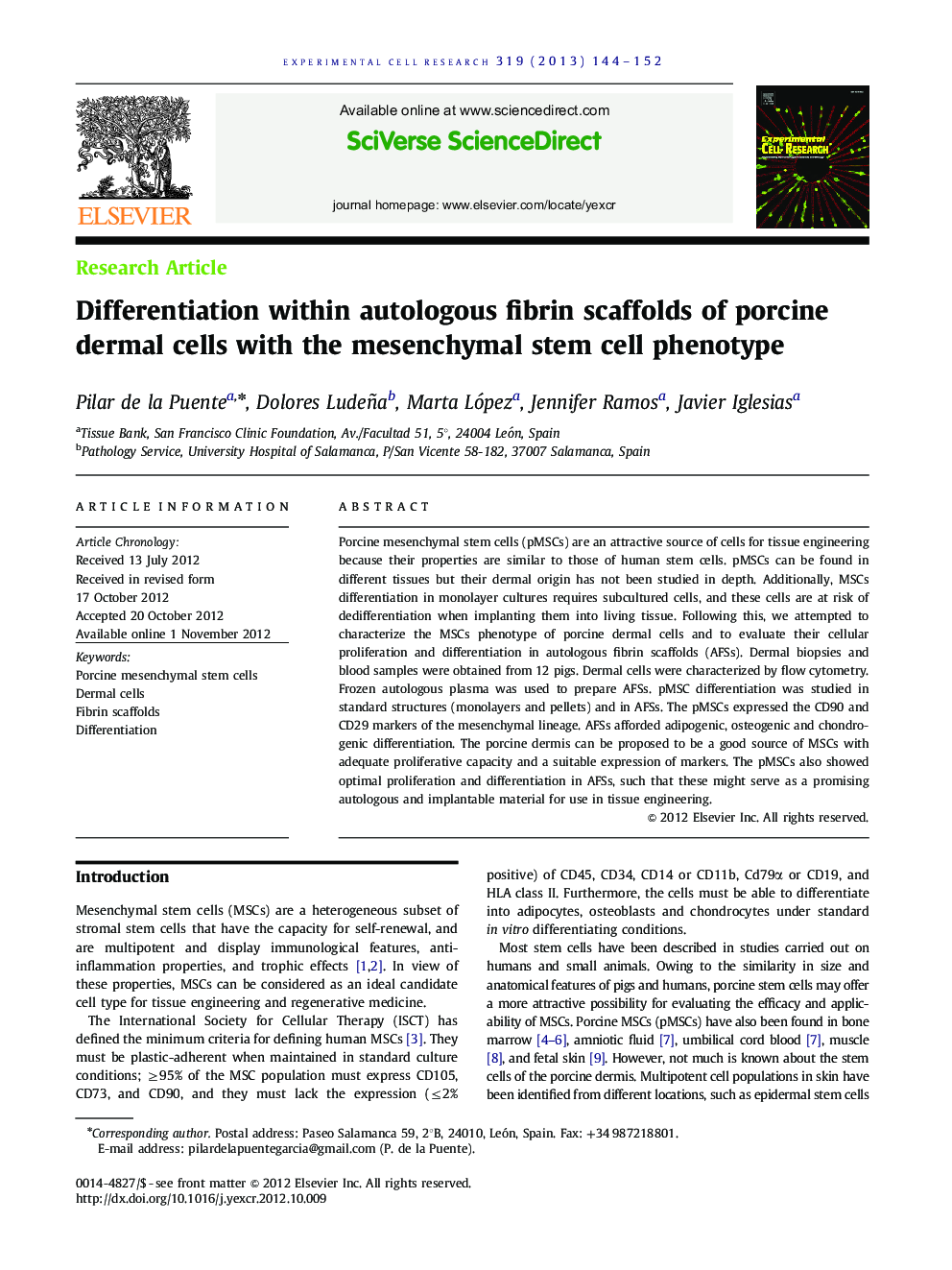| Article ID | Journal | Published Year | Pages | File Type |
|---|---|---|---|---|
| 2130574 | Experimental Cell Research | 2013 | 9 Pages |
Porcine mesenchymal stem cells (pMSCs) are an attractive source of cells for tissue engineering because their properties are similar to those of human stem cells. pMSCs can be found in different tissues but their dermal origin has not been studied in depth. Additionally, MSCs differentiation in monolayer cultures requires subcultured cells, and these cells are at risk of dedifferentiation when implanting them into living tissue. Following this, we attempted to characterize the MSCs phenotype of porcine dermal cells and to evaluate their cellular proliferation and differentiation in autologous fibrin scaffolds (AFSs). Dermal biopsies and blood samples were obtained from 12 pigs. Dermal cells were characterized by flow cytometry. Frozen autologous plasma was used to prepare AFSs. pMSC differentiation was studied in standard structures (monolayers and pellets) and in AFSs. The pMSCs expressed the CD90 and CD29 markers of the mesenchymal lineage. AFSs afforded adipogenic, osteogenic and chondrogenic differentiation. The porcine dermis can be proposed to be a good source of MSCs with adequate proliferative capacity and a suitable expression of markers. The pMSCs also showed optimal proliferation and differentiation in AFSs, such that these might serve as a promising autologous and implantable material for use in tissue engineering.
► Low fibrinogen concentration provides a suitable matrix for cell migration and differentiation. ► Autologous fibrin scaffolds is a promising technique in tissue engineering. ► Dermal cells are an easily accessible mesenchymal stem cell source. ► Fibrin scaffolds afforded adipogenic, osteogenic and chondrogenic differentiation.
